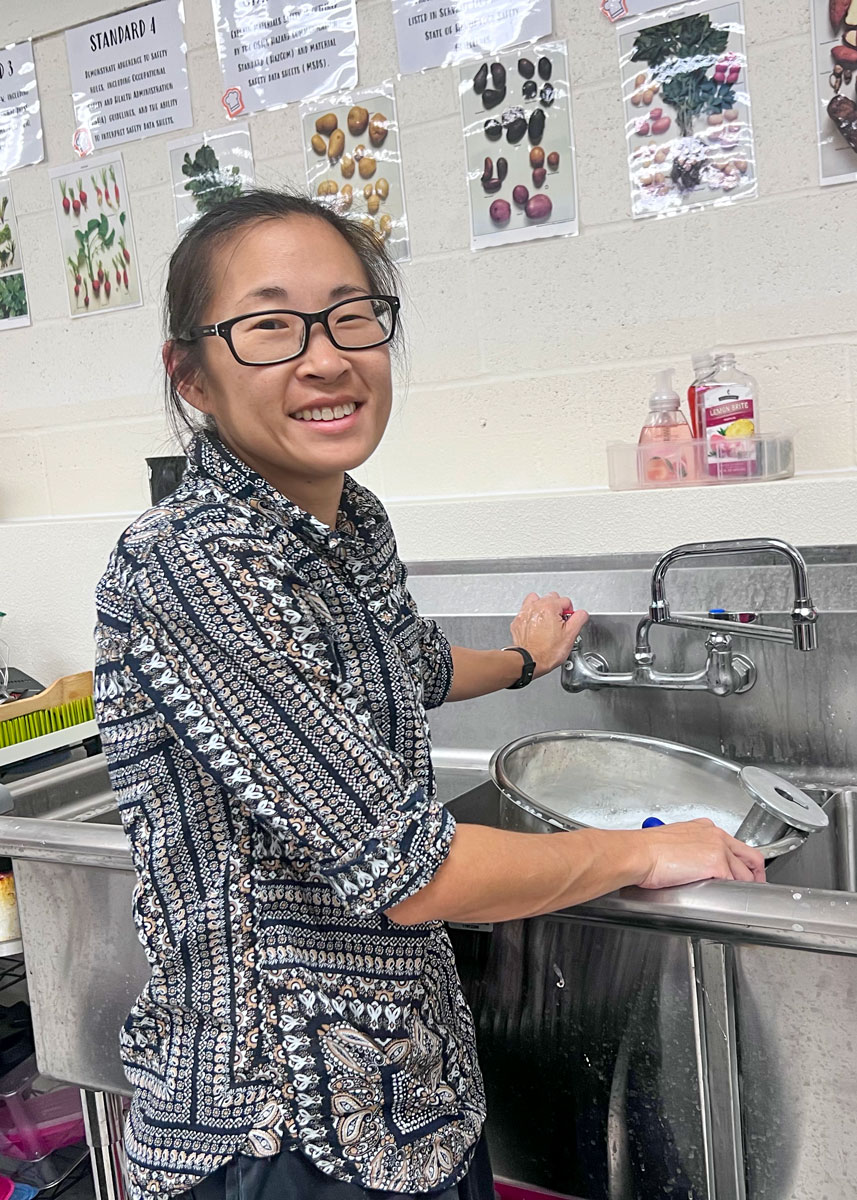
Tiffanie Masutani is a culinary teacher at Kalani High School who uses ethics and patience to build relationships with students, teach valuable life skills, and spread friendship via cooking.
In culinary class at Kalani, students cook with provided instructions. They can also season the food the way they want. Masutani also encourages student friendships, whether they work in pairs or individually. The teacher intends for the environment to be safe and fun.
Masutani also gives students the choice to have a voice and wants them to be heard. Students get to eat their own dishes and try the dishes that classmates make. This means students will give each other feedback, which is another way that Masutani helps foster friendships between the students.
“We’ve been doing a lot of recipes where they work together, and then they sort of share with each other how it tastes. Masutani states “Sometimes even my things may not work as well, you let them try it, so I’d say it’s about the effort.”
Ms. Masutani doesn’t like conflict in her classroom. She explains that conflict can happen, the kitchen can be very pressuring, and there can be many disagreements. It can get very tense
“We try to leave it,” Masutani mentions. “It happens sometimes in the kitchen. People think that they’re right, you know, so we try to kind of get them all back on the same page.”
Cooking in the kitchen is not only a very fast-paced hobby, it requires the skills of communication, creativity, and passion to deliver the most tasteful dish, she explains. It’s normal to struggle at first, but Ms. Masutani ensures that learning with her will be a safe place.
Masutani teaches students not only culinary skills but also techniques for building relationships. She hopes that, through cooking, students learn how to create meaningful memories with loved ones. Put simply: rather than teaching cooking, Masutani teaches the idea of giving.
“I hope that they will still understand that food can help build community and that they can take the skills that they’re learning and share them with their friends or their family,” she says. “And if they go off to college, they can cook a little bit for themselves.”








